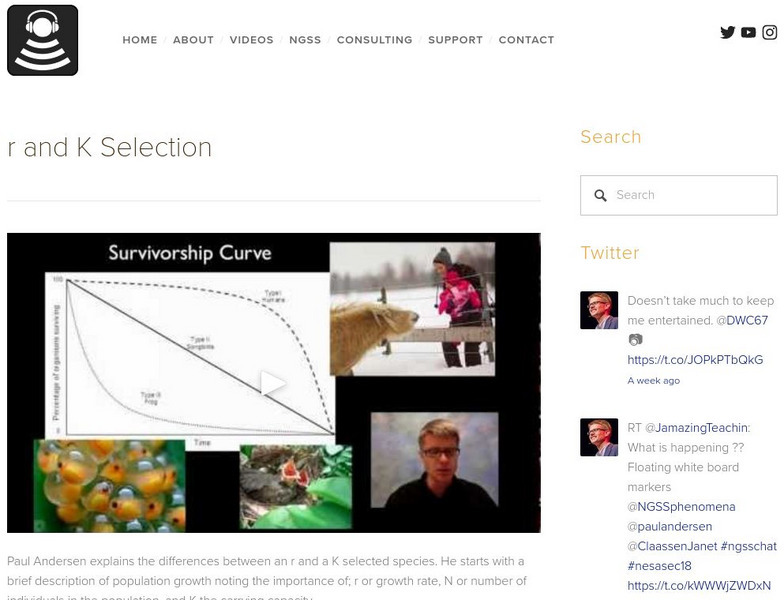msvgo
Population Growth
This nugget explains the different growth models in population ; exponential growth and logistic growth and their attributes
Curated Video
Stavros Karamperidis: Maritime economics, university of Plymouth
The US has called for a 'global response' to attacks by the Iranian-backed Houthis in the Red Sea.
AFP News Agency
VOICED : Rhinos in Kenya transported to new home
VOICED : Rhinos in Kenya transported to new home
AFP News Agency
CLEAN : Rhinos in Kenya transported to new home
CLEAN : Rhinos in Kenya transported to new home
Crash Course
Migrations and Intensification: Crash Course Big History #7
What happens when the earth reaches its carrying capacity of humans? As human populations grow, societies change from hunters and gatherers to agriculture to the industrial age and beyond. A video takes a global perspective of migration...
Bozeman Science
r and K Selection
Some species have one gender that is r-selected while the other is K-selected. A video focuses on growth rate and the difference between r-selected species and K-selected species. It includes a discussion of fecundity and carrying...
Curated OER
Populations : Biotic Potential
Why do most populations remain stable over time? Usually it is a result of either environmental resistance or carrying capacity. Examine some of the factors that help stabilize animal populations, and explore some of the changes that...
Bozeman Science
Logistic Growth
A video on logistic growth begins with a review of exponential growth before moving on to limiting factors. This naturally leads to a decrease in the growth rate and a discovery of carrying capacity.
Crash Course
Human Population Growth
The total world population is predicted to pass 8 billion by 2025, which is less than 10 years from now. The video focuses on human population growth and the impact it has had and is having on our planet and other populations. It...
Sophia Learning
Sophia: Limiting Factor: Lesson 1
This lesson will explain how a limiting factor effects the size of a population. It is 1 of 4 in the series titled "Limiting Factor."
Bozeman Science
Bozeman Science: R and K Selection
Paul Andersen explains the differences between an r and a K selected species. He starts with a brief description of population growth noting the importance of; r or growth rate, N or number of individuals in the population, and K the...
Bozeman Science
Bozeman Science: Logistic Growth
Paul Andersen explains how populations eventually reach a carrying capacity in logistic growth. He begins with a brief discussion of population size ( N ), growth rate ( r ) and exponential growth. He then explains how density dependent...








